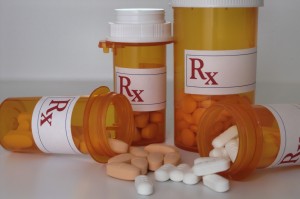 A growing practice, now gaining popularity, is that of obtaining and using certain prescription drugs to create a constant happy mood, or enhance a skill set – like memory, attention or physical performance. People who have not been diagnosed with deficits are making use of the effects of drugs in a “designer” fashion to enhance certain aspects of their behavior. It’s called “cosmetic pharmacology” and I’d like to tell you about this concerning trend.
A growing practice, now gaining popularity, is that of obtaining and using certain prescription drugs to create a constant happy mood, or enhance a skill set – like memory, attention or physical performance. People who have not been diagnosed with deficits are making use of the effects of drugs in a “designer” fashion to enhance certain aspects of their behavior. It’s called “cosmetic pharmacology” and I’d like to tell you about this concerning trend.
Cosmetic Pharmacology – Are You At Risk?
The term “cosmetic pharmacology” was put into use by psychiatrist Peter D. Kramer back in the 1990’s. Like having cosmetic surgery to enhance the look or function of your face, cosmetic pharmacology offers to change your normal state of mind, or skills set, to a new normal, even when your regular state is not deemed a medical problem.
For example, it’s not normal to be in a state of highly optimistic euphoria all the time. Most of us function on a somewhat lower amplitude than that on a daily basis. We experience spikes of happiness/euphoria when events happen in our life, such as winning the lottery, getting a big raise, achieving a long-cherished goal, falling in love, getting married, having your first child, etc.
Yet, promoters of cosmetic pharmacology aim to put you in that euphoric state all the time. All you need to do is take a specific mood-elevating drug, like Prozac et al, to accomplish that goal even though a doctor has not diagnosed you with clinical depression.
Other examples include business people and students seeking to “cosmetically” use drugs created for people with clinical memory deficits (Alzheimer’s disease) or attention deficit/learning disorders (for ADD/ADHD, etc) to enhance their memory or attention. They feel it allows them to be more successful in their job or helps them cram and succeed on tests.
Those who support the use of cosmetic pharmacology see the use of prescription drugs in this personal enhancement capacity as the right of any individual who wants to use them. They see these drugs as the future of personalized medicine – being able to pick and choose which behaviors, moods, skill sets you want to enhance and which you want to deter. All by popping a pill.
Opponents of cosmetic pharmacology say that the practice is not only unethical but is an outgrowth of trend-following, naïve consumerism – one that says you merely have to pop a drug to get the effect you want. Yet, the real risks of cosmetic pharmacology are often disguised.
For example, when the drug Prozac first came on the scene, doctors (and their patients) thought it was the best thing since sliced bread. As an antidepressant, Prozac actually over-performed and did more than just elevate depression – it produced high states of euphoria. As a result other antidepressants and anti-anxiety drugs were prescribed to anyone complaining of being a little down or stressed out.
After a while though, people who took Prozac also started to report incredible mood crashes. Severe depression, suicidal and even homicidal behavior were blamed on the drug’s side effects. The Prozac syndrome was born – a “honeymoon” period of elated mood followed by severe, debilitating and often dangerous mood crashes. Doctors became concerned that people not diagnosed with clinical depression, and not under a doctor’s care, were obtaining and using antidepressants just to feel “happier” or less stressed.
Another example are college students, not diagnosed with ADD/ADHD, taking Ritalin to cram for exams because of the drug’s ability to enhance attention span and its stimulation effect. Chronic use of these stimulant-like drugs can cause serious side effects like heart and kidney damage, insomnia, high blood pressure, burnt out adrenal glands, and even psychotic episodes.
Just about any prescription psychoactive drug, like mood elevators, memory and/or attention enhancers, are available for recreational, personally designated use. But, who’s monitoring the risk of side effects in people who take prescription drugs in this fashion?
What You Can Do Besides Cosmetic Pharmacology
If you’re experiencing chronic low mood and/or memory/attention problems, you may have an undiagnosed nutritional deficiency that can safely be addressed first rather than resorting the use prescription drugs on your own. Common deficiencies that can cause behavioral changes, low moods and lack of concentration are the B vitamins (specifically B12 and B6) found in meats, fish and dairy products; magnesium found in dairy, fruits and vegetables; Vitamin D found in dairy, some fish and sunlight; Omega-3’s DHA/EPA found in oil fish like salmon, mackerel and tuna.
In addition, deficiencies in antioxidants like A, C, E (yellow/orange vegetables, citrus fruits and green vegetables, nuts), affect the brain’s function. Deficiencies put you at risk for poor memory, impaired learning, irritability, and chronic low moods. Besides food sources, these antioxidants can also be found in supplement form.
Mild mood ups and downs, memory glitches, attention deficits, impaired learning or physical performance, can be a normal result of a stressed out lifestyle. Optimizing your diet, sleep habits, and reducing your stress levels, could significantly improve these symptoms. If these symptoms don’t improve using these natural methods first, please see your doctor to further diagnose any underlying cause that may warrant the use of a prescription drug.
Stay Well,
Mark Rosenberg, M.D.
Natural Health News
Cosmetic pharmacology, http://en.wikipedia.org/wiki/Cosmetic_pharmacology
Vitamins for the Brain and Memory, http://www.livestrong.com/article/273346-vitamins-for-the-brain-memory/
Mental Health Meds as Social Drugs? http://www.webmd.com/mental-health/features/mental-health-meds-as-social-drugs?page=2
